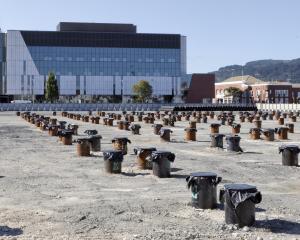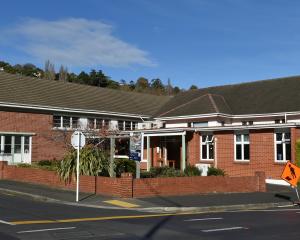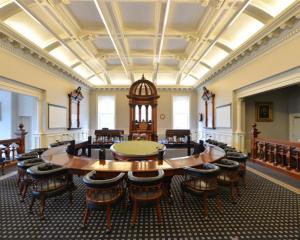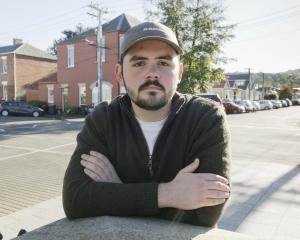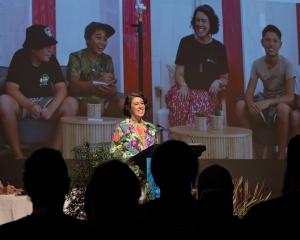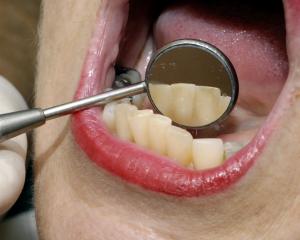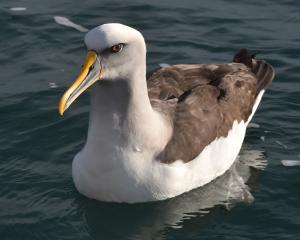
Once a year, I get to eat lunch with heroes.
They are men with simple names - Norman, Clive, Bill - and simple tastes. Lunch is usually meat and three veg. With gravy.
They are old men now.
Most are nudging 90 or just on the other side. Age has wearied them, slowed them down - physically, at least - and taken too many of their friends away from them.
Once, the Otago Mounted Rifles reunion was a lavish three-day affair, attended by hundreds. They gathered in Dunedin over a weekend, and a running joke was that when "absent friends" were toasted at Sunday's church service, they were referring to those who had celebrated a little too vigorously the previous night.
For the past few years, the annual OMR get-together has been a quiet affair.
The old soldiers are, literally, a dying breed. Now there are more names each year to add to the list of absent friends. More seats are filled by sons, grandchildren, daughters-in-law, friends. But the spirit of the brigade refuses to go gently into the night.
The front of the room still features the same three men: indefatigable leader Ken Mowat, quick-witted Norman McElwee, and mischievous Clive "Speedy" Stringer, always ready to share a drink with his old mates.
There is an agenda, of sorts, to be followed. Raffles to be drawn.
A toast to the Queen. A report from a woman from the pony clubs which compete for a trophy bearing the OMR name.
Sometimes the microphone isn't working. Often the men running the show forget what's supposed to come next. It's a delightful chaos.
Usually, we stand for the Last Post and reveille. But there was no bugler this year. That was sad.
Then we eat - "Mess parade", Norman McElwee booms in his distinctive voice.
After lunch, more speakers. A healthy strain of black humour runs through men who saw their best friends die in battle: "There aren't many of us left", "Those of us who are still here next year".
At the end of the meeting, the top brass usually say something about this being the last formal reunion. There are usually murmurs of disapproval from the floor. A vote follows, and there is a unanimous verdict that we will be back next year.
But there was only silence at the Taieri RSA earlier this month when it was revealed this, finally, would be the last reunion.
With perhaps a dozen OMR men left, it seemed a sad reality had reluctantly been accepted by all.
In an apt farewell, Bill "Banjo" Patterson - one of a small group of soldiers from Oamaru who have continued to come to the reunions - dusted off his instrument and played us out with Roll Out The Barrel and We Are The Boys From Way Down Under.
I'm finding it very difficult to do justice to the OMR men, and to the privilege it has been to have been a part of their annual get-togethers for the past few years.
I go to the OMR reunions to be with my grandparents, Lex and Lorna Meikle, who live at Weston, near Oamaru.
Granddad (90) joined the Otago Mounted Rifles in 1938, when he was 18, and was a member of the famed Y Block, one of the last of the soldiers to actually ride horses before the regiment turned to armoured vehicles.
He spent most of the early years of World War 2 in essential services, having been manpowered to help with harvesting, mustering and shearing on various North Otago farms.
In January 1944, he sailed to the other side of the world with the 11th Reinforcements. He spent some time training at the Suez Canal and in Egypt, then joined the 18th Armoured Regiment as a tank driver.
Lex would spend the rest of the war inside his Sherman tank in Italy. He missed Cassino, mercifully, but he saw plenty of action as the Allies pushed north in what was essentially a mopping-up operation away from the main action in France.
He contracted diphtheria and spent weeks flat on his back in a hospital in Bari. But he was back in his tank when the war ended, and was there during the uneasy stand-off with the Yugoslav partisans in Trieste that is now considered the first act of the Cold War.
Lex came home, put his name in the ballot for a chunk of North Otago downlands, and won the right to purchase Rosebery, 10km inland from Oamaru, where the third generation of Meikles continues to live.
My grandfather spoke little about his wartime experiences until a few years ago.
I was lucky enough to be given the task of interviewing him at length and compiling his memories into a book - From Steed to Steel - for the extended family.
Lex's story is part of a great OMR fabric that stretches back to November 1864, when members of the Otago Hussars met in a pub to discuss forming a mounted regiment.
The OMR was disbanded in 1956. Those of us with a connection eagerly await the publication of the regiment's story, co-ordinated by Dr Don Mackay and due out in November.
After that, who knows? Maybe the old spirit of the regiment will live on and the children and grandchildren of the mounted men will do what they can to keep its flame burning. I hope so.


